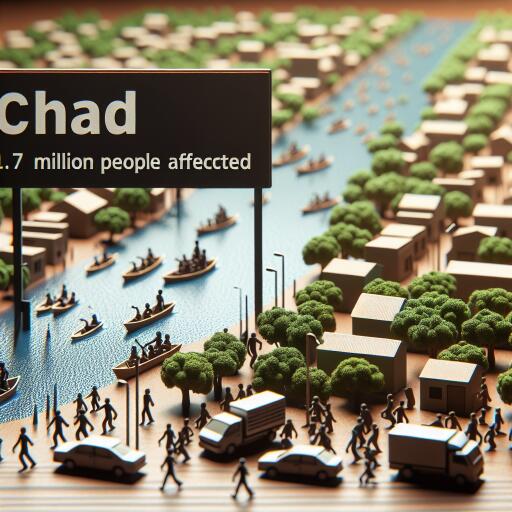
Chad Floods Killed 503, 1.7 Million Affected: UN | News
Severe flooding in Chad since July has taken a devastating toll, claiming 503 lives and impacting around 1.7 million people, the United Nations reported on Saturday in its latest update on the disaster.
The flooding has caused extensive damage, destroying 212,111 houses, submerging 357,832 hectares (885,000 acres) of farmland, and drowning 69,659 heads of cattle, according to the UN’s Office for the Coordination of Humanitarian Affairs (OCHA) in Chad.
All of Chad’s provinces have been affected by the flooding, according to Marcelin Kanabe Passale, Chad’s water and energy minister. Speaking to journalists on Saturday morning, Passale warned that the situation could worsen.
“The waters of the Logone and Chari rivers have reached a critical height likely to cause more severe flooding in the coming days,” Passale stated.
N’Djamena, Chad’s capital, is located at the confluence of the Logone and Chari rivers, placing it at significant risk.
Passale advised that all water from private wells should be treated with chlorine before consumption to prevent health risks.
He also mentioned the establishment of a flood-monitoring committee to “assess the risks associated with the pollution of drinking water supplies and rising river levels,” highlighting the ongoing concerns for public health and safety.
Earlier in September, the UN had already issued a warning regarding the impact of “torrential rains and severe flooding” across the region, including Chad. The call for immediate action and funding to combat climate change was emphasized.
Regional Catastrophe
Chad is not isolated in experiencing severe flooding during the peak of the rainy season. Numerous countries in West and Central Africa have endured similar disasters in recent weeks due to relentless torrential rains.
More than four million people across 14 different countries have been affected by rising waters, the World Food Programme warned on September 17.
Northern Cameroon, near the borders with Chad and Nigeria, has experienced 125 percent more rainfall than typical for this season, according to a mid-September OCHA report. The UN estimates that 20 people have died and over 236,000 have been affected in Cameroon since the end of August.
In neighboring Nigeria, massive floods in the northeastern city of Maiduguri have claimed at least 30 lives and displaced 400,000 people, officials reported.
Since the onset of the current rainy season in Africa’s most populous country, floods have killed 229 people and displaced more than 380,000, according to figures from the National Emergency Management Agency.
While outbreaks of flooding are not unusual during the region’s typically heavy rainy season, scientists have consistently warned that climate change driven by human-induced fossil fuel emissions is causing more frequent, intense, and prolonged periods of extreme weather.
This summer has been marked by a series of record temperatures, heatwaves, droughts, and severe floods, making it the hottest ever recorded globally. The situation underscores the urgent necessity of addressing climate change to mitigate further catastrophic impacts.





Leave a Reply